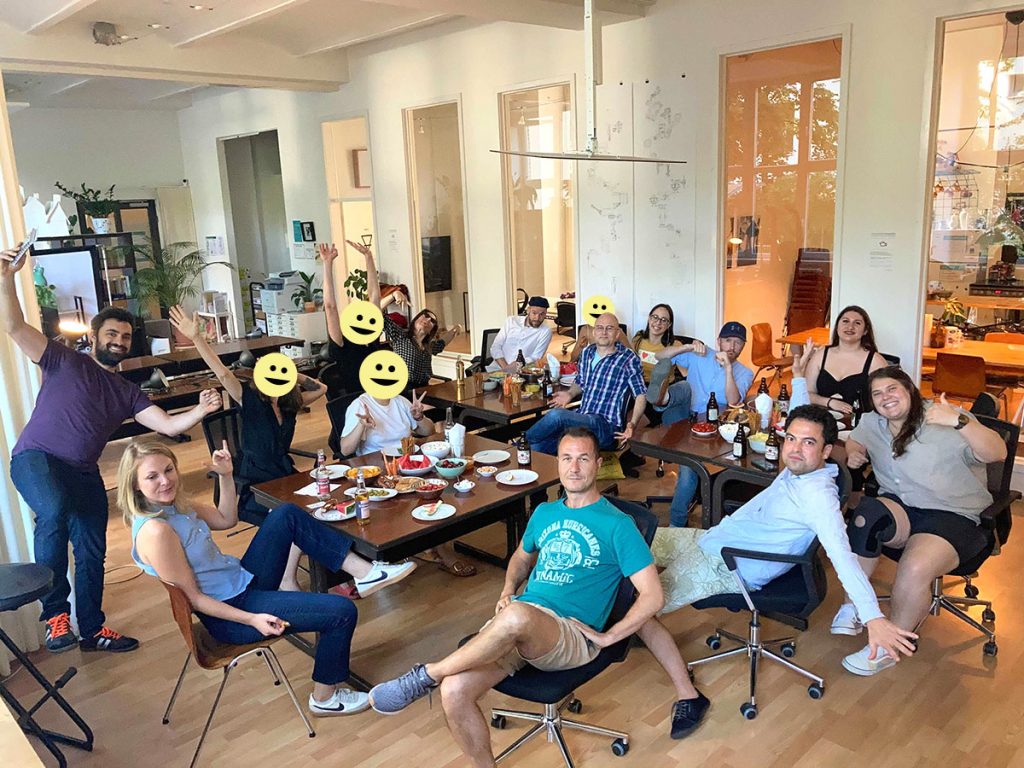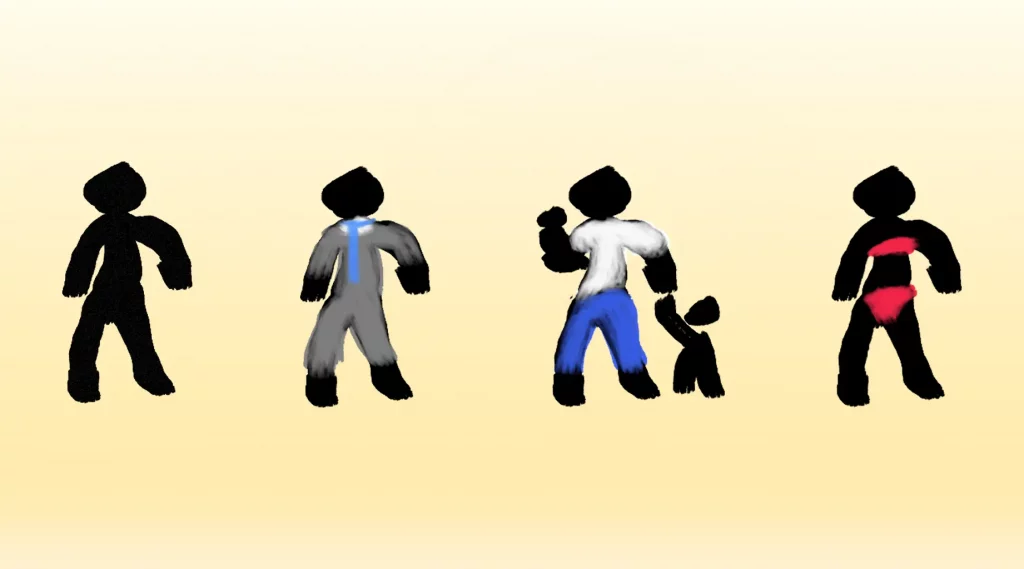








What is the discussion experiment?
The discussion experiment is a project with the aim of developing techniques for conversations that make it easier for participants to reach a common understanding of a topic despite differing opinions. It reduces misunderstandings, topic jumps and conflicts to make discussions more inspiring and fun.
To achieve this, different approaches are tried out in practice and continuously improved, always with a focus on finding simple and robust methods that participants find interesting and enriching.
Creating clarity instead of arguing
A key approach of the discussion experiment is to transform the process of debating into a process of joint reflection and clarification.
The participants express their positions according to clear rules and are assisted in identifying and naming the core of their own statement. A live visualisation of these core statements helps the group to gain orientation on the subject and to reference each others‘ positions.
Slowing down the conversation to move faster
In the discussion experiment, the conversation is significantly reduced in pace. All important arguments are documented and made immediately visible. As a result, differences of opinion can be captured without the need to discuss them immediately. This takes the pressure off the participants to have to refute „wrong“ statements immediately and leads to a more productive and less antagonistic exchange.
Creating new discussion dynamics through joint facilitation
The participants of the discussion experiment are enabled to take co-responsibility for the moderation of the discussion. This happens both through easily comprehensible rules and through various tools for co-directing the course of the discussion. This results in a change of perspective and greater motivation to contribute to the success of the discussion.
 The discussion experiment is currently a personal project of mine, Igor Don. I run it (besides having fun with it) out of the conviction that we can open up better ways of exchanging views on controversial and complicated issues – and that this can be a path to more justice, less polarisation and conflict. Because I also believe that new methods can only succeed if they are found satisfying by the participants, I develop my method based on experimentation, experience and feedback. You can find out more about my background and other projects on Linkedin.Hintergrund und andere Projekte könnt ihr auf
The discussion experiment is currently a personal project of mine, Igor Don. I run it (besides having fun with it) out of the conviction that we can open up better ways of exchanging views on controversial and complicated issues – and that this can be a path to more justice, less polarisation and conflict. Because I also believe that new methods can only succeed if they are found satisfying by the participants, I develop my method based on experimentation, experience and feedback. You can find out more about my background and other projects on Linkedin.Hintergrund und andere Projekte könnt ihr auf 